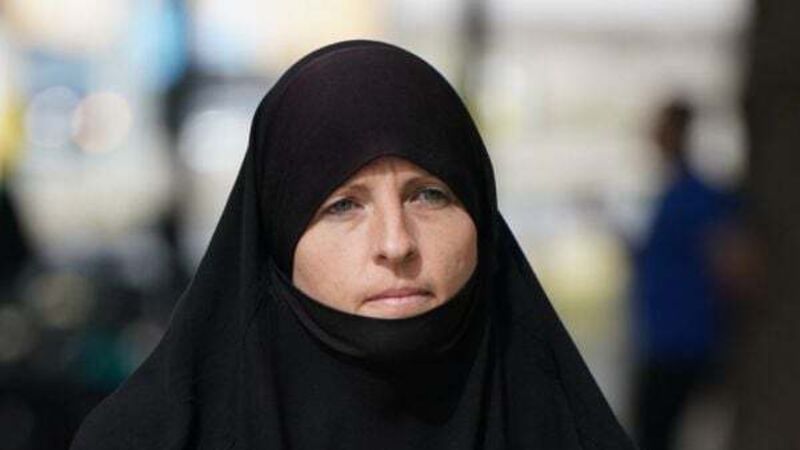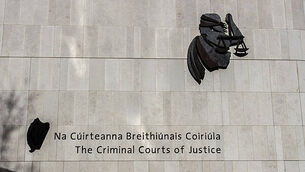UK government challenges tribunal ruling over ex-Irish soldier who joined IS

Tom Pilgrim, PA
The British government is appealing against a tribunal’s conclusion that a UK entry ban could not be imposed on an Irish former soldier convicted of membership of the so-called Islamic State (IS) terror group.
Lisa Smith (41), an ex-Defence Forces member, was found guilty in May last year of IS membership but cleared of a separate charge of financing terrorism after a nine-week trial at Dublin’s Special Criminal Court.
Before her conviction, Smith was made subject of a UK Home Office-issued exclusion order, preventing her from entering the UK, from December 2019 on the grounds of public security.
However, Smith successfully appealed against the order at the UK's Special Immigration Appeals Commission (SIAC), which concluded in May last year that the enforcement action in her case would be “incapable of justification”.
British home secretary Suella Braverman is now appealing against the SIAC decision, arguing it was wrong to decide Smith had “immunity” from exclusion.
Smith, a convert to Islam, went to Syria in 2015 after terrorist leader Abu Bakr al-Baghdadi called on Muslims to travel there.
The former soldier was handed a 15-month sentence in July.
Belfast-born father
Smith’s father is originally from Belfast and her dispute with the Home Office centres on whether she is entitled to enter the UK as a result.
The UK has a legal right to exclude non-British citizens from EEA (European Economic Area) countries, including Ireland, but that does not cover those of dual nationality.
Smith was born in Ireland, but due to her parents being unmarried at the time, missed out on automatic British citizenship.
Her lawyers argue she is not responsible for this “accident of birth” and is entitled to be treated as a British citizen under the European Convention on Human Rights.
At a hearing in London on Tuesday, Cathryn McGahey KC, representing the British home secretary, said: “The Secretary of State’s case is: You are a non-citizen.
“We wish to exclude you because you pose a danger to national security and we can do that because you are a foreign national.
“We accept that you have the right to apply to be a British national.
“If you do that, the Secretary of State can then decide whether to deprive you of the citizenship and exclude you.”
Ms McGahey told the court that Smith was a “mono-Irish national” and claimed she does not want to be a British national nor dual Irish-British citizen.
Smith, from Co Louth, previously said she identifies as Irish and believes she is “entitled to be treated as British by virtue of my birth rights”, the court was told in her legal team’s written submissions.
Ms McGahey said what Smith seeks is “the status of someone entitled to be treated as if she were a British citizen … for the limited purpose only of the UK’s exclusion laws”, arguing that British nationality is an “indivisible package of rights and obligations”.
“It is not possible as a matter of law for somebody to be treated as though they were British purely to avoid exclusion but to be a foreign national for all other purposes,” she added.
The barrister argued that Smith “seeks a right that … is available only to a British citizen not to a class of persons entitled to be treated as though they were British citizens”.
In written arguments, Hugh Southey KC, representing Smith, said the Home Office’s appeal should be dismissed and the SIAC decision “contains no error of law”.
He argued there was “no justification for the stark differential and less favourable treatment” of Smith “based solely on an accident of birth for which she is not responsible”.
“Ms Smith lives close to the Irish border with the United Kingdom. As a consequence, her ability to move across the border is part of her social identity,” he added.
Mr Southey argued it was discriminatory to require Smith to apply for British nationality and take an oath of allegiance because it was “not consistent with her right to self-identify as Irish, a right safeguarded by the Good Friday Agreement”.
Lord Justice Underhill, Lord Justice Lewis and Lady Justice Elizabeth Laing will give their ruling on the case at a later date.












